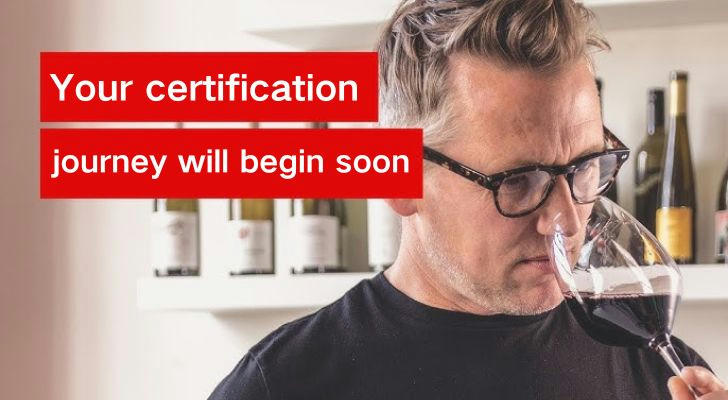Zero Foundation? No Problem! A Beginner's Sommelier Certification Recommendation
For those in the United States who have always admired the art of wine yet believe they lack the background to pursue a career as a sommelier, the world of wine education is more accessible than ever. Even if you’re starting with zero experience, there are well-structured introductory courses—many backed by government subsidies and corporate scholarships—that can launch you into the field.

The Foundations of Sommelier Training
Sommelier certification programs are designed to take you from a novice with a passion for wine to a skilled professional capable of curating wine lists and delivering exceptional service. According to the Court of Master Sommeliers, the introductory course typically spans two days of intensive learning that covers wine theory, tasting techniques, service protocols, and even an overview of spirits and beers. Whether you opt for the in-person or the increasingly popular online format, the curriculum is carefully structured to build your knowledge step by step.
Key elements of the course include:
Wine Theory and Viticulture: Gain a basic understanding of grape varieties, major wine regions, and winemaking techniques.
Tasting Skills: Learn the systematic approach to tasting that enables you to identify aromas and flavors with confidence.
Service Standards: Develop the fundamentals of proper wine service, from the correct temperature to presentation etiquette.
For beginners, these courses are often offered at an accessible price point, with many training providers offering flexible payment plans. In addition, many courses qualify for government vocational training subsidies and are supported by corporate scholarship programs, which can help offset tuition costs.
What to Expect: Duration, Fees, and Success Rates
Most entry-level sommelier courses are designed with the working professional in mind. In the United States, you can find programs that run over a period of three to six months. The online formats, for instance, allow you to study at your own pace while balancing work and personal commitments. In-person courses, while more intensive, are typically scheduled as weekend boot camps or as short-term programs lasting a couple of days.
Fees and Financial Support:
Course fees can vary widely depending on the provider and format. For example, the Court of Master Sommeliers’ Introductory Sommelier Course and Examination costs around $899 for in-person training and about $599 online. These costs can be reduced through government subsidies—many states actively support vocational training programs—and through corporate scholarships offered by industry organizations and employers.
Passing Rates and Employment Outcomes:
A realistic aspect of any certification program is understanding its pass rate. For the Certified Sommelier level (the next step after the introductory course), the Court of Master Sommeliers reports an average pass rate of about 66% for first-time test takers. In terms of employment, certified sommeliers are in high demand in upscale restaurants, hotels, and wine bars, with many graduates finding positions in regions known for vibrant culinary scenes such as New York, California, and the Pacific Northwest. While specific employment statistics vary, reputable training programs often boast high placement rates among their graduates.

Real-Life Success Stories
Consider Sarah, a hospitality worker from New York, who enrolled in an online introductory course after her employer encouraged her to seek further certification. Within five months, she not only passed the introductory exam with flying colors but also received a corporate scholarship that covered part of her tuition. Today, Sarah is a valued member of a well-known restaurant’s service team, where her certification has opened doors to advanced training opportunities.
Similarly, John from California took advantage of a government-subsidized course in his state. With a curriculum designed to accommodate busy professionals, John was able to complete the program while working full-time. His newfound expertise allowed him to secure a role in a boutique winery, where his ability to guide customers through complex wine pairings has made him a sought-after expert in his community.
These examples highlight that with determination and the right support, even those with zero background in wine can achieve professional certification and advance their careers.
Weighing the Benefits Against Potential Risks
While the prospects of becoming a certified sommelier are exciting, it’s important to acknowledge that the career comes with potential challenges. Working in fine dining and upscale hospitality environments can be fast-paced and physically demanding. The role often requires long hours, including evenings, weekends, and holidays, and the pressure to maintain exceptional service standards can be intense.
Moreover, the hospitality industry is sensitive to economic fluctuations. In times of downturn, job stability can be a concern, and the workload might increase as establishments strive to cut costs. Being aware of these risks upfront allows you to prepare both mentally and physically for the realities of the profession.
Steps to Launch Your Sommelier Journey
Ready to take the plunge? Here’s a concrete roadmap to help you get started on your sommelier certification journey:
Research Accredited Programs:
Begin by identifying reputable sommelier certification programs. Look for courses endorsed by recognized bodies such as the Court of Master Sommeliers or those that have strong industry partnerships. Check websites and read reviews to ensure the course’s credibility.
Explore Financial Assistance Options:
Investigate available government subsidies and corporate scholarship programs that can reduce your financial burden. Contact training providers to ask about installment plans and scholarship eligibility.
Plan Your Schedule:
Assess your current commitments and decide whether an online or in-person course fits your lifestyle. Online programs often offer flexibility, while in-person courses provide hands-on experience that is invaluable for service training.
Prepare for the Exams:
Utilize available study guides, practice exams, and mentorship opportunities. Some programs offer additional workshops or preparatory sessions to boost your confidence and skills.
Network with Industry Professionals:
Attend wine tasting events, join online forums, or participate in local wine clubs. Building relationships with experienced sommeliers can provide guidance, mentorship, and even job leads after certification.
Enroll and Commit:
Once you’ve selected the program that best suits your needs, enroll and commit to the study schedule. Consistent effort and engagement are key to passing the certification exams and ultimately succeeding in the industry.

Final Thoughts
Embarking on a sommelier certification journey—especially from a zero foundation—is an investment in both your education and future career. With comprehensive training programs, financial support through government and corporate initiatives, and a strong network of industry professionals, you can overcome initial challenges and build a rewarding career in the dynamic world of wine.
If you’re passionate about wine and ready to take the first step, follow the concrete steps outlined above to secure your certification, gain practical experience, and prepare for the exciting yet demanding path ahead. Cheers to new beginnings and a future filled with wine, wisdom, and professional growth!
